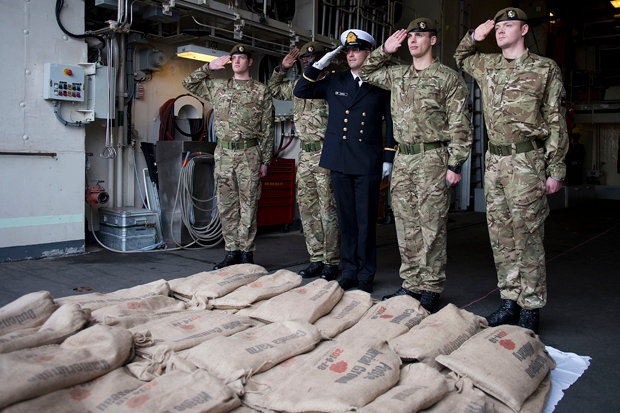First, a confession. Even an ardent radio addict can enjoy a fortnight away from the airwaves, disconnected, switched off, unlistening. On return even the programmes that are usually ignored because they’ve become so familiar catch your attention. I grew up with Gardeners’ Question Time as a regular weekly slot on Sunday afternoons, snooze time for my overworked Dad, but stopped listening after the great schism of 1994, when the entire panel abandoned the BBC and moved over to the new Classic FM station because they didn’t like the way the BBC was handing over its production to an independent company. The illusion that the programme was a bit otherworldly, not part of the hard-bitten news and current affairs schedules or the argy-bargy of commerce, was shattered. On Sunday, though, I happened upon it by chance and for once didn’t switch off precisely because I was still relishing that particular pleasure of listening to disembodied voices, taking me into another world, beyond my usual sphere.
The format of GQT has been tweaked a bit since it began in 1947. It’s not all about answering questions these days but also includes interviews and visits to specialist gardens. My ear was tweaked when instead of more questions about yellow leaves on a skimmia plant or aphids on lupins (asked by an audience in Tiverton) we were suddenly taken back 100 years to Flanders and the trenches. Matthew Wilson was on a visit to the Flanders Fields Memorial Garden, which is being constructed at the Wellington Barracks in London (filled with sandbags of soil collected by schoolchildren from the battlefields of Belgium). In conversation with the garden historian Russell Clark we heard that there are photographs of soldiers from the great conflict of 1914–18 in the trenches carrying watering cans along the duckboards to water their improvised gardens. Celery, it turns out, grew well in the dark dankness of the trench bottom. There is also a surviving military medal in the Imperial War Museum — not for valour but for First Prize tomatoes at the Le Havre vegetable show, August 1918.
Such stories about how ordinary life goes on amid the horror of war have a poignancy far more resonant than continual reminders of the noise, chaos and random cruelty of the battlefield. What spirit it must have taken to plant flowers, not even food to eat, knowing that on the morrow it might be your turn to go over the top. Clark reminded us, of course, that there were 475 miles of trenches and they stayed the same for much of the war. Much of war is boring. Gardening was not just an attempt to stave off homesickness and nostalgia but was also something to do for active men caught in the frustration of the waiting game. Being reminded of such realities validates these current centenary celebrations, which might otherwise appear to be focusing too much on war as a patriotic endeavour, a chauvinist adventure.
They also lie behind the new Radio 4 series, 1914: Day by Day. Its aim is to follow in real time the events that led up to the outbreak of war in 1914, but not just the big stories. Also included will be snippets of information from newspapers and diaries to show that in these days life also went on as usual. On Friday, for instance, the first of the series began with the voice of Nellie Hall, a member of the Women’s Social and Political Union. On this day in 1914, she had been on hunger strike for five weeks and was in court pleading ‘Not guilty’, accused of being a dangerous militant. A cache of 22 coils of fuse, seven bags of stones and a great pile of flints, together with a typewritten document detailing how to make an improvised shrapnel grenade, had been found in her lodgings.
In Sarajevo, in the heart of the Austro–Hungarian empire, a discontented Bosnian Serb, Gavrilo Princip, was planning on the same day his own violent acts. Elsewhere in Bosnia, the Archduke Franz Ferdinand, with his wife Sophie, was being advised at a celebratory banquet not to visit Sarajevo the next day because of the hostility of the Bosnian Serbs, who were unhappy that their country had been annexed to the empire just six years earlier. Sophie thought such fears were nonsense. ‘Everywhere we have gone here we have been treated with so much friendliness and by every last Serb too.’
Back in London it was a remarkable week for culture vultures with Richard Strauss conducting his own music at the Queen’s Hall, Elgar recording ‘Pomp and Circumstance’ and the Ballets Russes performing at Drury Lane. We learnt all this in less than four minutes, guided by the historian Margaret MacMillan, whose authoritative and yet very engaging voice drew us in to the complex web of events.
The series continues each day for the next 43 days until the outbreak of war. To catch each programme on a day-by-day basis will have an intriguing cumulative impact as MacMillan strives to show how the war began without the benefit of hindsight.






Comments